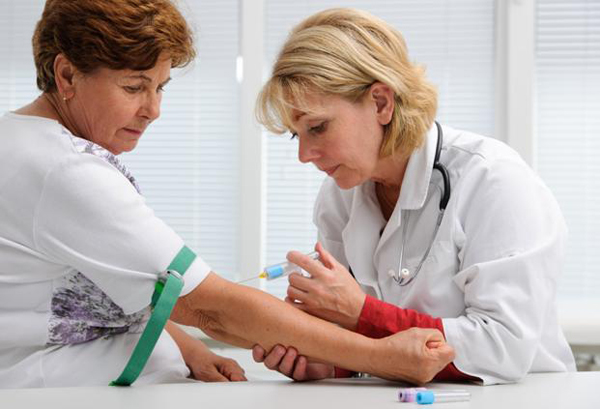Overview
Certificate III in Pathology Collection
The role of pathology collector is critical to the efficient operation of the medical system.
Pathology collectors are required to display high levels of technical competency, strong
discretion and sound judgement, impeccable knowledge of procedures and protocols, as
well as outstanding communication and customer service skills. Certificate III in Pathology Collection will prepare you for all this and more and provide
you with the qualifications to begin an exciting career in this field under general supervision.
As a pathology collector, you will interact with large numbers of patients from a diverse range
of backgrounds in various medical conditions. Our highly-regarded course will ensure that you have
the technical capabilities and cultural know-how to fulfil that role with efficiency, skill and sensitivity.
35 Hours of clinical placement is required to complete this course.
Diploma of Nursing
This qualification reflects the role of an enrolled nurse working under supervision of a
registered nurse. This qualification covers the application of skills and knowledge
required to provide nursing care for people across the health sector. A lifespan
approach should underpin this qualification with relevant competencies that relate to the
different stages of life identified within the units. This course covers the full range of skills
and knowledge that you require to launch an exciting career in a challenging and critical field,
where patient care is central to everything that you do. You will gain theoretical
knowledge and practical experience to deal with simple through to complex cases, as well as
the communication skills, cultural sensitivity and legal and ethical frameworks to carry out your
duties effectively. A graduate from a Diploma of Nursing program approved by the Nursing
and Midwifery Board of Australia (NMBA) is able to apply for registration with the NMBA as
an enrolled nurse. This course includes 25 units (20 core units + 5 elective units) and 432 Hours
Practical Placement within healthcare facilities and community settings.
This course is delivered in partnership with TrEd College (RTO 40797).
Units
Units for Certificate III in Pathology Collection
14 units of competency (9 Core units + 5 Elective units)
Core Units (9 Units):
| CHCCOM005 | Communicate and work in health or community services |
| CHCDIV001 | Work with diverse people |
| HLTINF001 | Comply with infection prevention and control policies and procedures |
| HLTPAT001 | Identify and respond to clinical risks in pathology collection |
| HLTPAT002 | Perform venous blood collections |
| HLTPAT004 | Collect pathology specimens other than blood |
| HLTWHS001 | Participate in workplace health and safety |
| BSBCUS201 | Deliver a service to customers |
| BSBMED301 | Interpret and apply medical terminology appropriately |
Elective Units (5 Units):
| HLTAID003 | Provide first aid |
| CHCCCS027 | Visit client residence |
| HLTAAP001 | Recognise healthy body systems |
| HLTCAR001 | Perform electrocardiography (ECG) |
| HLTHPS002 | Support health professional in the delivery of care |
Units for Diploma of Nursing
25 unit of competency (20 core units & 5 elective units).
Core Units (20 Units):
| CHCDIV001 | Work with diverse people |
| CHCDIV002 | Promote Aboriginal and/or Torres Strait Islander cultural safety |
| CHCPRP003 | Reflect on and improve own professional practice |
| HLTAAP002 | Confirm physical health status |
| HLTAAP003 | Analyse and respond to client health information |
| HLTENN001 | Practise nursing within the Australian health care system |
| HLTENN002 | Apply communication skills in nursing practice |
| HLTENN003 | Perform clinical assessment and contribute to planning nursing care |
| HLTENN004 | Implement, monitor and evaluate nursing care plans |
| HLTENN005 | Contribute to nursing care of a person with complex needs |
| HLTENN006 | Apply principles of wound management in the clinical environment |
| HLTENN007 | Administer and monitor medicines and intravenous therapy |
| HLTENN008 | Apply legal and ethical parameters to nursing practice |
| HLTENN009 | Implement and monitor care for a person with mental health conditions |
| HLTENN011 | Implement and monitor care for a person with acute health problems |
| HLTENN012 | Implement and monitor care for a person with chronic health problems |
| HLTENN013 | Implement and monitor care of the older person |
| HLTENN015 | Apply nursing practice in the primary health care setting |
| HLTINF001 | Comply with infection prevention and control policies and procedures |
| HLTWHS002 | Follow safe work practices for direct client care |
Elective Units (5 Units):
| BSBLDR403 | Lead team effectiveness |
| CHCPOL003 | Research and apply evidence to practice |
| HLTAID003 | Provide first aid |
| HLTENN010 | Apply a palliative approach in nursing practice |
| TAEDEL402A | Plan, organise and facilitate learning in the workplace |
Requirements
- Successful completion of a Police Clearance Check and Working With Children Check
- Vaccination Record
- A cover letter explaining why you would like to study Diploma of Nursing
- Aged 18 years of above and HSC Certificate or equivalent Australian certificate or other
post-secondary school certificate at Certificate III level or higher; or
Completion of a relevant Certificate III or IV Qualification for eg Pathology, Individual Support,
Health Services assistance
- Copy of your Certificate III or IV in Aged Care, or Individual Support if you have completed it.
- Successfully undertaken ACER Language, Literacy and Numeracy Test, also known as
Core Skills Profile for Adults (CSPA) with at least exit level 3
- 30 minute face-to-face interview with head of college
Pathways
Bachelor of Nursing






